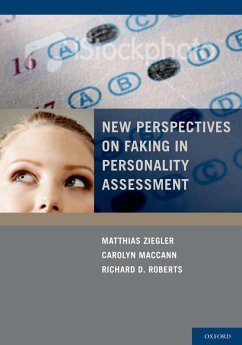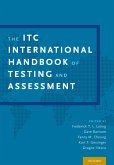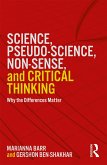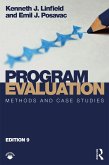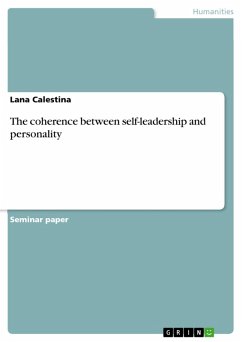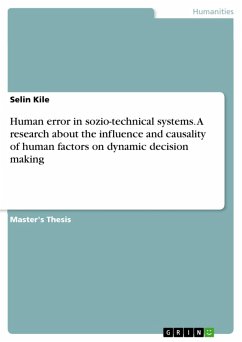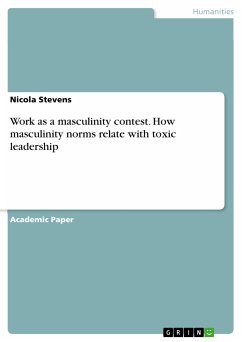New Perspectives on Faking in Personality Assessment (eBook, PDF)
Redaktion: Ziegler, Matthias; Roberts, Richard; Maccann, Carolyn
50,95 €
50,95 €
inkl. MwSt.
Sofort per Download lieferbar

25 °P sammeln
50,95 €
Als Download kaufen

50,95 €
inkl. MwSt.
Sofort per Download lieferbar

25 °P sammeln
Jetzt verschenken
Alle Infos zum eBook verschenken
50,95 €
inkl. MwSt.
Sofort per Download lieferbar
Alle Infos zum eBook verschenken

25 °P sammeln
New Perspectives on Faking in Personality Assessment (eBook, PDF)
Redaktion: Ziegler, Matthias; Roberts, Richard; Maccann, Carolyn
- Format: PDF
- Merkliste
- Auf die Merkliste
- Bewerten Bewerten
- Teilen
- Produkt teilen
- Produkterinnerung
- Produkterinnerung

Bitte loggen Sie sich zunächst in Ihr Kundenkonto ein oder registrieren Sie sich bei
bücher.de, um das eBook-Abo tolino select nutzen zu können.
Hier können Sie sich einloggen
Hier können Sie sich einloggen
Sie sind bereits eingeloggt. Klicken Sie auf 2. tolino select Abo, um fortzufahren.

Bitte loggen Sie sich zunächst in Ihr Kundenkonto ein oder registrieren Sie sich bei bücher.de, um das eBook-Abo tolino select nutzen zu können.
In this volume, a diverse group of world experts in personality assessment showcase a range of different viewpoints on response distortion. Contributors consider what it means to "fake" a personality assessment, why and how people try to obtain particular scores on personality tests, and what types of tests people can successfully manipulate. Anyone who wonders whether people exaggerate or lie outright on personality tests -- or questions what psychologists can and should do about it -- will find in this book stimulating questions and useful answers.
- Geräte: PC
- mit Kopierschutz
- eBook Hilfe
- Größe: 3.04MB
Andere Kunden interessierten sich auch für
![The ITC International Handbook of Testing and Assessment (eBook, PDF) The ITC International Handbook of Testing and Assessment (eBook, PDF)]() The ITC International Handbook of Testing and Assessment (eBook, PDF)133,95 €
The ITC International Handbook of Testing and Assessment (eBook, PDF)133,95 €![Science, Pseudo-science, Non-sense, and Critical Thinking (eBook, PDF) Science, Pseudo-science, Non-sense, and Critical Thinking (eBook, PDF)]() Gershon Ben-ShakharScience, Pseudo-science, Non-sense, and Critical Thinking (eBook, PDF)27,95 €
Gershon Ben-ShakharScience, Pseudo-science, Non-sense, and Critical Thinking (eBook, PDF)27,95 €![Program Evaluation (eBook, PDF) Program Evaluation (eBook, PDF)]() Kenneth J. LinfieldProgram Evaluation (eBook, PDF)162,95 €
Kenneth J. LinfieldProgram Evaluation (eBook, PDF)162,95 €![Psychology and the Choice of a Career (eBook, PDF) Psychology and the Choice of a Career (eBook, PDF)]() F. M. EarlePsychology and the Choice of a Career (eBook, PDF)54,95 €
F. M. EarlePsychology and the Choice of a Career (eBook, PDF)54,95 €![The coherence between self-leadership and personality (eBook, PDF) The coherence between self-leadership and personality (eBook, PDF)]() Lana CalestinaThe coherence between self-leadership and personality (eBook, PDF)13,99 €
Lana CalestinaThe coherence between self-leadership and personality (eBook, PDF)13,99 €![Human error in sozio-technical systems. A research about the influence and causality of human factors on dynamic decision making (eBook, PDF) Human error in sozio-technical systems. A research about the influence and causality of human factors on dynamic decision making (eBook, PDF)]() Selin KileHuman error in sozio-technical systems. A research about the influence and causality of human factors on dynamic decision making (eBook, PDF)36,99 €
Selin KileHuman error in sozio-technical systems. A research about the influence and causality of human factors on dynamic decision making (eBook, PDF)36,99 €![Work as a masculinity contest. How masculinity norms relate with toxic leadership (eBook, PDF) Work as a masculinity contest. How masculinity norms relate with toxic leadership (eBook, PDF)]() Nicola StevensWork as a masculinity contest. How masculinity norms relate with toxic leadership (eBook, PDF)13,99 €
Nicola StevensWork as a masculinity contest. How masculinity norms relate with toxic leadership (eBook, PDF)13,99 €-
-
-
In this volume, a diverse group of world experts in personality assessment showcase a range of different viewpoints on response distortion. Contributors consider what it means to "fake" a personality assessment, why and how people try to obtain particular scores on personality tests, and what types of tests people can successfully manipulate. Anyone who wonders whether people exaggerate or lie outright on personality tests -- or questions what psychologists can and should do about it -- will find in this book stimulating questions and useful answers.
Dieser Download kann aus rechtlichen Gründen nur mit Rechnungsadresse in A, B, BG, CY, CZ, D, DK, EW, E, FIN, F, GR, HR, H, IRL, I, LT, L, LR, M, NL, PL, P, R, S, SLO, SK ausgeliefert werden.
Produktdetails
- Produktdetails
- Verlag: OUP eBook
- Erscheinungstermin: 22. August 2011
- Englisch
- ISBN-13: 9780199909216
- Artikelnr.: 38139956
- Verlag: OUP eBook
- Erscheinungstermin: 22. August 2011
- Englisch
- ISBN-13: 9780199909216
- Artikelnr.: 38139956
- Herstellerkennzeichnung Die Herstellerinformationen sind derzeit nicht verfügbar.
Matthias Ziegler is a Junior Professor of Psychological Assessment at the Humboldt-Universität zu Berlin. His main research areas are personality and intelligence, and he deals specifically with various assessment approaches, the role of faking, and the interaction between different constructs to predict academic and job performance and knowledge. Carolyn MacCann is a psychology lecturer at the University of Sydney. She specializes in developing innovative assessment methods for psychological constructs, particularly as they relate to emotional intelligence, noncognitive assessments, and response distortion. Richard D. Roberts is a Principal Research Scientist in the Center for Academic and Workplace Readiness and Success at the Educational Testing Service in Princeton, New Jersey. His area of specialization is applied psychology, with a focus on educational and psychological assessment.
* I. General Background
* 1. Faking: Knowns, Unknowns, and Points of Contention
* Matthias Ziegler, Carolyn MacCann, and Richard D. Roberts
* II. Do People Fake and Does It Matter? The Existence of Faking and
Its Impact on Personality Assessments
* 2. People Fake Only When They Need to Fake
* Jill E. Ellingson
* 3. The Rules of Evidence and the Prevalence of Applicant Faking
* Richard L. Griffith and Patrick D. Converse
* 4. Questioning Old Assumptions: Faking and the
Personality-Performance Relationship
* D. Brent Smith and Max McDaniel
* 5. Faking Does Distort Self-Report Personality Assessment
* Ronald R. Holden and Angela S. Book
* III. Can We Tell if People Fake? The Detection and Correction of
Response Distortion
* 6. A Conceptual Representation of Faking: Putting the Horse Back in
Front of the Cart
* Eric D. Heggestad
* 7. Innovative Item Response Process and Bayesian Faking Detection
Methods: More Questions than Answers
* Nathan R. Kuncel, Matthew Bornemann, and Thomas Kiger
* 8. Searching for Unicorns: Item Response Theory Based Solutions to
the Faking Problem
* Michael J. Zickar and Katherine A. Wolford
* 9. Methods for Correcting For Faking
* Matthew C. Reeder and Ann Marie Ryan
* 10. Overclaiming on Personality Questionnaires
* Delroy L. Paulhus
* 11. The Detection of Faking through Word Use
* Matthew Ventura
* IV. Can We Stop People from Faking? Preventative Strategies
* 12. Application of Preventative Strategies
* Stephan Dilchert and Deniz Ones
* 13. Social Desirability in Personality Assessment: Outline of a Model
to Explain Individual Differences
* Martin Bäckström, Fredrik Björklund, and Magnus R. Larsson
* 14. Constructing Fake-Resistant Personality Tests Using Item Response
Theory: High Stakes Personality Testing with Multidimensional
Pairwise Preferences
* Stephen Stark, Oleksandr S. Chernyshenk, and Fritz Drasgow
* 15. Is Faking Inevitable? Person-level Strategies for Reducing Faking
* Brian Lukoff
* V. Is Faking a Consequential Issue Outside a Job Selection Context?
Current Applications and Future Directions in Clinical and
Educational Settings
* 16. Plaintiffs who Malinger: Impact of Litigation on Fake Testimony
* Ryan C.W. Hall and Richard C.W. Hall
* 17. Intentional and Unintentional Faking in Education
* Jeremy Burrus, Bobby D. Naemi, and Patrick C. Kyllonen
* VI. Conclusions
* 18. Faking in Personality Assessment: Reflections and Recommendations
* Carolyn MacCann, Matthias Ziegler, and Richard D. Roberts
* 19. Faking in Personality Assessment: Concluding Thoughts
* Paul Sackett
* 1. Faking: Knowns, Unknowns, and Points of Contention
* Matthias Ziegler, Carolyn MacCann, and Richard D. Roberts
* II. Do People Fake and Does It Matter? The Existence of Faking and
Its Impact on Personality Assessments
* 2. People Fake Only When They Need to Fake
* Jill E. Ellingson
* 3. The Rules of Evidence and the Prevalence of Applicant Faking
* Richard L. Griffith and Patrick D. Converse
* 4. Questioning Old Assumptions: Faking and the
Personality-Performance Relationship
* D. Brent Smith and Max McDaniel
* 5. Faking Does Distort Self-Report Personality Assessment
* Ronald R. Holden and Angela S. Book
* III. Can We Tell if People Fake? The Detection and Correction of
Response Distortion
* 6. A Conceptual Representation of Faking: Putting the Horse Back in
Front of the Cart
* Eric D. Heggestad
* 7. Innovative Item Response Process and Bayesian Faking Detection
Methods: More Questions than Answers
* Nathan R. Kuncel, Matthew Bornemann, and Thomas Kiger
* 8. Searching for Unicorns: Item Response Theory Based Solutions to
the Faking Problem
* Michael J. Zickar and Katherine A. Wolford
* 9. Methods for Correcting For Faking
* Matthew C. Reeder and Ann Marie Ryan
* 10. Overclaiming on Personality Questionnaires
* Delroy L. Paulhus
* 11. The Detection of Faking through Word Use
* Matthew Ventura
* IV. Can We Stop People from Faking? Preventative Strategies
* 12. Application of Preventative Strategies
* Stephan Dilchert and Deniz Ones
* 13. Social Desirability in Personality Assessment: Outline of a Model
to Explain Individual Differences
* Martin Bäckström, Fredrik Björklund, and Magnus R. Larsson
* 14. Constructing Fake-Resistant Personality Tests Using Item Response
Theory: High Stakes Personality Testing with Multidimensional
Pairwise Preferences
* Stephen Stark, Oleksandr S. Chernyshenk, and Fritz Drasgow
* 15. Is Faking Inevitable? Person-level Strategies for Reducing Faking
* Brian Lukoff
* V. Is Faking a Consequential Issue Outside a Job Selection Context?
Current Applications and Future Directions in Clinical and
Educational Settings
* 16. Plaintiffs who Malinger: Impact of Litigation on Fake Testimony
* Ryan C.W. Hall and Richard C.W. Hall
* 17. Intentional and Unintentional Faking in Education
* Jeremy Burrus, Bobby D. Naemi, and Patrick C. Kyllonen
* VI. Conclusions
* 18. Faking in Personality Assessment: Reflections and Recommendations
* Carolyn MacCann, Matthias Ziegler, and Richard D. Roberts
* 19. Faking in Personality Assessment: Concluding Thoughts
* Paul Sackett
* I. General Background
* 1. Faking: Knowns, Unknowns, and Points of Contention
* Matthias Ziegler, Carolyn MacCann, and Richard D. Roberts
* II. Do People Fake and Does It Matter? The Existence of Faking and
Its Impact on Personality Assessments
* 2. People Fake Only When They Need to Fake
* Jill E. Ellingson
* 3. The Rules of Evidence and the Prevalence of Applicant Faking
* Richard L. Griffith and Patrick D. Converse
* 4. Questioning Old Assumptions: Faking and the
Personality-Performance Relationship
* D. Brent Smith and Max McDaniel
* 5. Faking Does Distort Self-Report Personality Assessment
* Ronald R. Holden and Angela S. Book
* III. Can We Tell if People Fake? The Detection and Correction of
Response Distortion
* 6. A Conceptual Representation of Faking: Putting the Horse Back in
Front of the Cart
* Eric D. Heggestad
* 7. Innovative Item Response Process and Bayesian Faking Detection
Methods: More Questions than Answers
* Nathan R. Kuncel, Matthew Bornemann, and Thomas Kiger
* 8. Searching for Unicorns: Item Response Theory Based Solutions to
the Faking Problem
* Michael J. Zickar and Katherine A. Wolford
* 9. Methods for Correcting For Faking
* Matthew C. Reeder and Ann Marie Ryan
* 10. Overclaiming on Personality Questionnaires
* Delroy L. Paulhus
* 11. The Detection of Faking through Word Use
* Matthew Ventura
* IV. Can We Stop People from Faking? Preventative Strategies
* 12. Application of Preventative Strategies
* Stephan Dilchert and Deniz Ones
* 13. Social Desirability in Personality Assessment: Outline of a Model
to Explain Individual Differences
* Martin Bäckström, Fredrik Björklund, and Magnus R. Larsson
* 14. Constructing Fake-Resistant Personality Tests Using Item Response
Theory: High Stakes Personality Testing with Multidimensional
Pairwise Preferences
* Stephen Stark, Oleksandr S. Chernyshenk, and Fritz Drasgow
* 15. Is Faking Inevitable? Person-level Strategies for Reducing Faking
* Brian Lukoff
* V. Is Faking a Consequential Issue Outside a Job Selection Context?
Current Applications and Future Directions in Clinical and
Educational Settings
* 16. Plaintiffs who Malinger: Impact of Litigation on Fake Testimony
* Ryan C.W. Hall and Richard C.W. Hall
* 17. Intentional and Unintentional Faking in Education
* Jeremy Burrus, Bobby D. Naemi, and Patrick C. Kyllonen
* VI. Conclusions
* 18. Faking in Personality Assessment: Reflections and Recommendations
* Carolyn MacCann, Matthias Ziegler, and Richard D. Roberts
* 19. Faking in Personality Assessment: Concluding Thoughts
* Paul Sackett
* 1. Faking: Knowns, Unknowns, and Points of Contention
* Matthias Ziegler, Carolyn MacCann, and Richard D. Roberts
* II. Do People Fake and Does It Matter? The Existence of Faking and
Its Impact on Personality Assessments
* 2. People Fake Only When They Need to Fake
* Jill E. Ellingson
* 3. The Rules of Evidence and the Prevalence of Applicant Faking
* Richard L. Griffith and Patrick D. Converse
* 4. Questioning Old Assumptions: Faking and the
Personality-Performance Relationship
* D. Brent Smith and Max McDaniel
* 5. Faking Does Distort Self-Report Personality Assessment
* Ronald R. Holden and Angela S. Book
* III. Can We Tell if People Fake? The Detection and Correction of
Response Distortion
* 6. A Conceptual Representation of Faking: Putting the Horse Back in
Front of the Cart
* Eric D. Heggestad
* 7. Innovative Item Response Process and Bayesian Faking Detection
Methods: More Questions than Answers
* Nathan R. Kuncel, Matthew Bornemann, and Thomas Kiger
* 8. Searching for Unicorns: Item Response Theory Based Solutions to
the Faking Problem
* Michael J. Zickar and Katherine A. Wolford
* 9. Methods for Correcting For Faking
* Matthew C. Reeder and Ann Marie Ryan
* 10. Overclaiming on Personality Questionnaires
* Delroy L. Paulhus
* 11. The Detection of Faking through Word Use
* Matthew Ventura
* IV. Can We Stop People from Faking? Preventative Strategies
* 12. Application of Preventative Strategies
* Stephan Dilchert and Deniz Ones
* 13. Social Desirability in Personality Assessment: Outline of a Model
to Explain Individual Differences
* Martin Bäckström, Fredrik Björklund, and Magnus R. Larsson
* 14. Constructing Fake-Resistant Personality Tests Using Item Response
Theory: High Stakes Personality Testing with Multidimensional
Pairwise Preferences
* Stephen Stark, Oleksandr S. Chernyshenk, and Fritz Drasgow
* 15. Is Faking Inevitable? Person-level Strategies for Reducing Faking
* Brian Lukoff
* V. Is Faking a Consequential Issue Outside a Job Selection Context?
Current Applications and Future Directions in Clinical and
Educational Settings
* 16. Plaintiffs who Malinger: Impact of Litigation on Fake Testimony
* Ryan C.W. Hall and Richard C.W. Hall
* 17. Intentional and Unintentional Faking in Education
* Jeremy Burrus, Bobby D. Naemi, and Patrick C. Kyllonen
* VI. Conclusions
* 18. Faking in Personality Assessment: Reflections and Recommendations
* Carolyn MacCann, Matthias Ziegler, and Richard D. Roberts
* 19. Faking in Personality Assessment: Concluding Thoughts
* Paul Sackett
